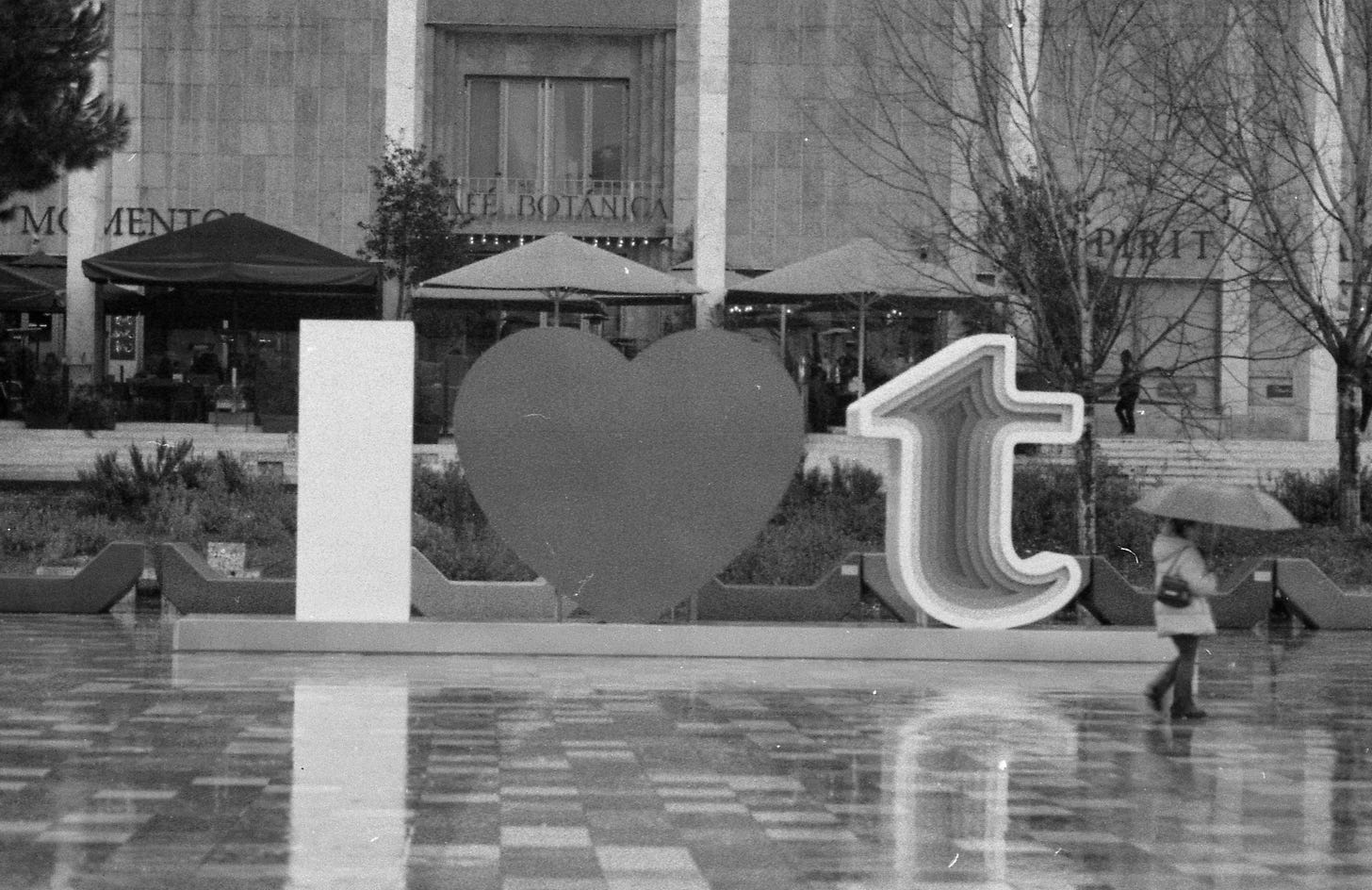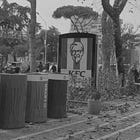A crucial aspect of the Albanian political system is its media apparatus, which functions as the main propaganda outlet for the government. Reporters without Borders qualifies our current predicament as follows:
In Albania, press freedom and media independence are threatened by conflicts of interest between the business and political worlds, a flawed legal framework and partisan regulation. Journalists are victims of acts of intimidation by politicians and organised crime.
A recent decision of the Special Appeals Court for Corruption and Organized Crime from March 2025 reviewing the pretrial detention of Mayor of Tirana Erion Veliaj shines a candid light upon these “conflicts of interest” between the Socialist government and the Albanian media. The dossier appended to the decision contains multiple wiretaps made of communications by Veliaj while in pretrial detention, as he attempts to wield his extensive hold over the mainstream media to influence public opinion in his favor, and to denigrate the Special Anti-Corruption Prosecution (SPAK) that is currently pursuing the corruption case against him, his wife, and their cultural and corporate accomplices.
The dossier states the following about Veliaj’s media campaign from jail:
Arbër Veliaj is directed by [his brother] Erion Veliaj to meet with journalists Carlo [Bollino], Mero [Baze] […] with the aim that posts in his favor are published constantly and more often. There are discussions regarding screen time on Top Channel, in particular the program Top Show of journalist Grida Duma, as well as the support received from the side of TV Klan and Report TV for the publication of news in his favor as well as attacks against the Special Prosecution.
Furthermore, according to the transcribed conversations, it is concluded that citizen Erion Veliaj also determines the editorial line of several media, where he asks for specific times for the publication of his social media status updates, with the aim that that news is repeated also later on the television/in the news.
And it is not only the team of Veliaj that is involved in the media management around his case, as one of the wiretaps confirms, also the Prime Ministry is keeping tabs:
Erion Veliaj asks for an overview showing the television channels that cover him and support his Media War. [Arbër] tells him, Top Channel covers us, Report TV covers us, Klan TV covers us. And Klan News? Arbër Veliaj says that they’re a bit of a problem […]. Erion Veliaj asks whether [Endri] Fuga has talked to them, which is confirmed by Arbër.
Fuga, the Communications Director of Prime Minister Edi Rama, is also involved later on in the campaign around Veliaj’s purported psychological decline in jail and is otherwise a constant fixture of the wiretaps. Even though informally these close relations between the Albanian political class and the media apparatus are well known, with ample stories circulating about the direct and indirect influence that politicians and oligarchs have on journalists, it is rare to find factual evidence of it, as provided in the Veliaj dossier.
The relations between the Rama government and the media can be traced back to the late 1990s. In 1998, coffee importer Dritan Hoxha started Top Albania Radio, which quickly became one of the most important radio stations in Albania, followed by television station Top Channel in 2001. Hoxha’s Top Channel aligned itself with Rama, who had that point had been elected Mayor of Tirana, and strongly supported the Socialist Party during the 2005 general elections against Sali Berisha. Hoxha perished in a car crash in 2008, and his grave monument was designed by Belgian architecture firm 51N4E in 2009. Considering the fact that this firm in the same period also designed Rama’s private residency in Surrel, Skënderbeg Square, one of the first skyscrapers in the city, and the Center for Openness and Dialogue in the Prime Ministry,1 the Top Channel owner’s mausoleum is an important symbol for the politics–construction–media complex that Rama was to establish over the years.
Another media figure close to the Rama government, also mentioned in the Veliaj dossier, is Carlo Bollino. In the early 1990s, Bollino established news portal Balkanweb, television station News24, and newspaper Gazeta Shqiptare. After leaving Albania for a while, he returned in 2014, establishing Report TV and the news portal Shqiptarja.com, both of which have since been explicitly pro-Rama. In return, Bollino was granted the lease of two government bunkers in Tirana under extremely favorable conditions, where he established the profitable tourist attractions Bunk’Art 1 and 2.
While it is important to award those media owners and journalists who provide consistently favorable coverage, it is equally important to eliminate those that provide credible reporting and analysis that may not be so favorable. They are the constant target of harrassment by individuals and companies close to the government, as well as government officials themselves. A frequently used method are intimidation lawsuits, also known as “SLAPPs.” A “Non-paper regarding the Fundamentals for Albania” from the Council of the European Union, dated to May 2025, mentions 73 SLAPP cases in 2023 and 43 cases in the first ten months of 2024, while noting that “Albania still needs to implement a systematic monitoring and reporting of judicial cases involving journalists, including cases of intimidation and threats […] which became more prominent.”
To begin with, in 2016 Bollino launched a lawsuit against the news portal Hashtag.al, which frequently targeted the Rama government, claiming that they had used his photograph without permission and had slandered him (with their satire). These claims were publicly amplified by Rama’s Communications Director Fuga. As a result, the website was temporarily blocked.
In October of the same year, an episode of Artan Rama’s investigative news program Públicus was blocked by the owners of private television channel Vision Plus. The episode was supposed to deal with the case of child laborer Ardit Gjoklaj, who died on the “model” landfill of Sharrë, which had been extensively promoted by Tirana Mayor Veliaj and was managed by a Socialist Party official. The owners of Vision Plus also owned construction company Edil Al-It, which, perhaps not coincidentally, soon after won a tender for the reconstruction of the Theater of Opera and Ballet in Tirana. When Artan Rama dedicated a long Facebook post to the suspicious conditions under which this tender had been granted, Edil Al-It proceeded to target him with a SLAPP.
Sometimes the pressure doesn’t come from the legal side, but is simply exercised by politicians on media owners directly. This for example led to the shutting down of the critical talk shows of Adi Krasta and Ylli Rakipi at News24 in 2019.
Such acts of legal and political repression are not limited to individual journalists, programs, or relatively small online news portals. Also large television channels with a wide exposure risk running afoul of the government. An important early example here is the suppression of Agon Channel in 2015, the government-critical TV station of another Italian entrepreneur, Francesco Becchetti, which ended up costing the Albanian government nearly €100 million in damages.
Another example is the fate of television channel Ora News, which was at times critical of the Rama government. In August 2020, Ora News owner Ylli Ndroqi was arrested by SPAK on drug trafficking charges and the premises of the television channel were raided. In the days following the raid, Ora News published multiple threatening messages from Tirana Mayor Veliaj had sent to Ndroqi, including that he would “not forgive him” for Ora News’s reporting.2 Eventually, a state administrator was appointed to oversee the editorial line of Ora News, which led to an exodus of those journalists who in the past had dared to criticize the government, such as Sonila Meço. Recent reporting on the state administration of Ora News evidences frequent delays in salary payments, tax avoidance, and other violations of labor rights.
Yet another strategy is simply the acquisition of non-aligned media channels by government-allied oligarchs. This is for example the case with SCAN TV, which was bought by the powerful oligarch Samir Mane in 2022. And also Euronews Albania, which initially started as a relatively independent local franchise of Euronews, was in the same year acquired by the influential oligarch and construction company owner Shefqet Kastrati. Even though the contract was eventually revoked, its owner Theodhoro Çami promptly installed former Socialist Party MP and former Top Channel director Ben Blushi as director to make sure the channel toes the party line.
And then I am not even mentioning the general lack of public accountability and transparency, the insistent stonewalling of freedom of information requests, the blacklisting of specific journalists from press conferences, and the endless barrage of insults and abuse against journalists from the prime minister himself.
Currently there are no major television channels left that provide some semblance of pushback against the onslaught of Albanian government propaganda. This is a situation that is relatively novel: since the early 2000s, beginning with Top Channel, there had always been at least one major TV channel providing the alternative of a serious counterweight to the government’s narrative.
The situation of online media is equally precarious. A multitude of government-allied online “news” portals, such as Mero Baze’s Gazeta Tema, appear to copy and distribute ready-made posts directly provided by the government. Independent investigative reporting is mainly limited to national online portals such as Reporter.al and Citizens.al and local initiatives such as Nyje.al, while other online outlets suffer from the direct or indirect influence of the emasculated opposition, following essentially the same lines of pressures as sketched out above, even if less pronounced or effective.
The unparallelled concentration of Albanian economic power around a small class of politically well-connected oligarchs bodes little good for the future of independent Albanian media. Investigative reporting is time-consuming and resource-intensive, with intangible and uncontrollable outcomes that donors, whether corporate or non-profit, have little incentive to finance sustainably for the long term.
A prestigious Western newspaper has the following motto in its masthead: “Democracy Dies in Darkness.” These noble words mean to say that it is the independent, critical media that keep the light shining – and democracy alive. This newspaper, in reality, is owned by one of the richest oligarchs on the planet, who, after financially supporting and attending the inauguration of his nation’s fascist leader, recently occupied Venice to throw a €50 million wedding. Put differently, the system I have sketched out above is not particular to Albania; this is the current predicament of the media all around the world.
The Albanian Mechanism is part of Manifesto GREAT WAVE.
These projects are listed in 51N4E’s “Thumbnail Portfolio”: TID Tower (no. 67); Skënderbeg Square (no. 102); Villa Dajti (no. 107); For Dritan Hoxha (no. 117). The latter two projects have been erased from 51N4E’s public catalog of works, while Rama’s villa in Surrel was obfuscated as “Single family home and atelier” in Amorgos, Greece, in 51N4E’s 2011 publication Double or Nothing. 51N4E remains an important component of Rama’s architectural propaganda, also through its Albanian incorporation iRi.
What further complicates this picture is that in 2022 the US Treasury Department declared Ndroqi “non-grata,” in part for utilizing “media outlets formerly under his control to extort and blackmail Albanian citizens through demands for money and advertising purchases in exchange for withholding publication of negative media stories.” This should remind us that the abusive tactics of the Rama government are in no way particular to his side of the political spectrum: journalists are vulnerable to exploitation from all sides.







